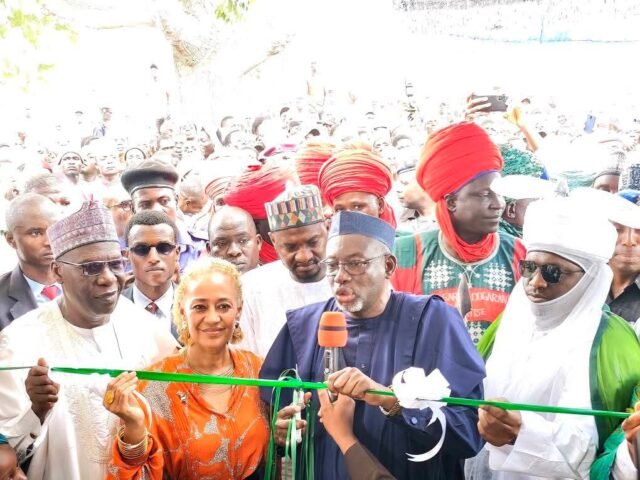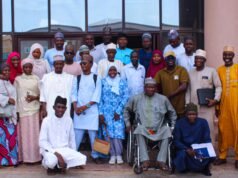By Ali Rabiu Ali, Dutse
In a significant development aimed at enhancing the resilience of basic services to climate change, the UK Government, in collaboration with UNICEF, has handed over climate-resilient infrastructure for basic services to the Jigawa State Government.
The handover ceremony, which took place at Chamo Primary School and Chamo Primary Health Care (PHC) in Dutse Local Government Area, on Monday 8th September, 2025 marked a major milestone in the implementation of the Climate Resilient Infrastructure for Basic Services (CRIBS) project.
The state governor Malam Umar Namadi commended the efforts of FCDO-UNICEF for their concern to Jigawa state and Nigeria at large for the development project and concern on health and education. He assured sustainability for every project done by the development partners for the betterment of Jigawa state citizens.

Cynthia Rowe, the FCDO representative said the CRIBS project, funded by the UK Government, aims to demonstrate a scalable model for assessing climate risks and vulnerabilities of primary healthcare facilities and primary schools, and implementing interventions to make them more resilient. The project rehabilitated 54 facilities in 15 Local Government Areas across Kano and Jigawa States.
The handover ceremony featured remarks from key stakeholders, including Wafaa Saeed, UNICEF Nigeria Country Representative, and Cynthia Rowe, Development Director, FCDO. The facilities were handed over to H.E. Malam Umar Namadi, Executive Governor of Jigawa State.
Wafaa Saeed, UNICEF Nigeria Country Representative, said the project developed a novel approach and tool for assessing climate risks and vulnerabilities of PHCs and schools, and selecting evidence-based interventions to address them.
Saeed stated that the CRIBS project rehabilitated facilities with climate-resilient solutions, including flood-resistant foundations, stormwater management, and natural ventilation.
The project was implemented in partnership with the Jigawa State Government, UNICEF, FCDO, and other stakeholders, illustrated the power of collaboration in achieving development goals.
According to him, the project aimed to ensure the long-term sustainability of the facilities through a sustainable operation and maintenance mechanism.
The handover ceremony marks a significant step towards building a more resilient future for the people of Jigawa State. The CRIBS project is expected to have a positive impact on the lives of the people, particularly children and women, by providing them with access to climate-resilient basic services.
As the Jigawa State Government takes over the facilities, it is expected to ensure their continued operation and maintenance, thereby sustaining the benefits of the project.










